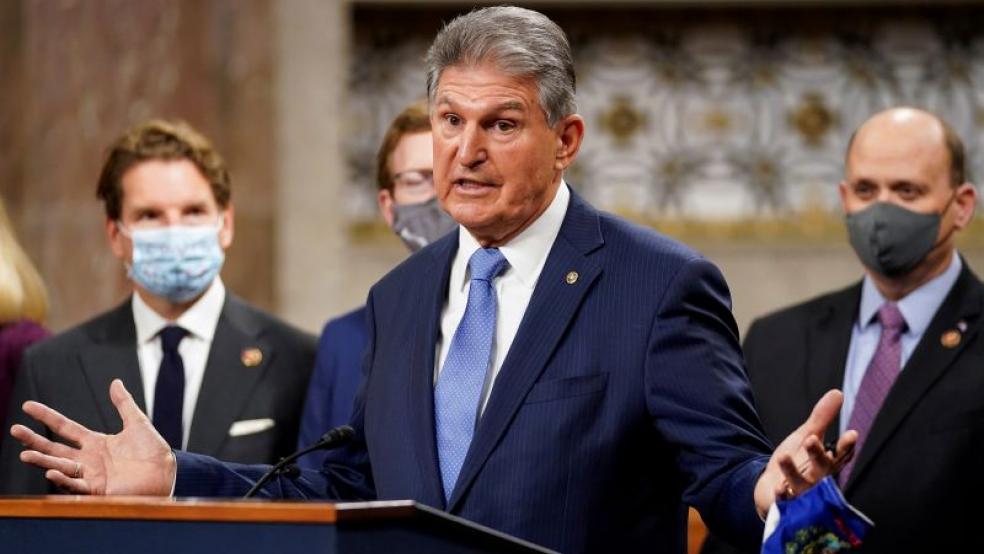Democratic lawmakers in the coming weeks will attempt to craft what could be the largest spending package in U.S. history.
The effort will pick up speed on Thursday when the House Ways and Means Committee begins to consider its part of the $3.5 trillion reconciliation bill that contains the bulk of President Biden’s economic agenda.
But Democrats face a slew of hurdles in achieving their goal, from a severely compressed timeline as they try to construct a massive spending plan in a matter of weeks to a fundamental lack of agreement on the size of the package and the ways to pay for it. Add in a possible government shutdown when funding runs out at the end of the month and the need to raise the debt ceiling, and you could have a perfect recipe for an epically difficult month.
“September is set to be an unmitigated mess,” says Compass Point’s Isaac Boltansky. “We are entering a period of frenetic and muddled legislating encompassing potentially trillions in spending, tax increases, the return of the debt ceiling and a bevy of substantive deadlines at the end of September touching on everything from federal funding to flood insurance.”
One eye on spending: The Senate has given the House the green light to write a bill that includes as much as $3.5 trillion in spending over 10 years, and Democratic leadership, as well as progressives on the left, are pushing to include the full amount, to be spent on what The New York Times’s Jonathan Weisman called “the most significant expansion of the nation’s safety net since the war on poverty in the 1960s, devising legislation that would touch virtually every American’s life, from conception to aged infirmity.”
But they face resistance from conservative members of their caucus, most notably Sen. Joe Manchin (D-WV), a crucial vote in a Senate divided 50-50.
Late last week in a Wall Street Journal op-ed, Manchin called for a “strategic pause” on the spending plan, citing inflation and the increase in the national debt as reasons to move slowly. “I, for one, won’t support a $3.5 trillion bill, or anywhere near that level of additional spending, without greater clarity about why Congress chooses to ignore the serious effects inflation and debt have on existing government programs,” Machin wrote.
On Monday House Speaker Nancy Pelosi (D-CA) dismissed Manchin’s call for a pause. “Well, obviously I don’t agree,” she said. “I'm pretty excited about where we are. Everybody's working very hard, the committees are doing their work. We’re on a good timetable, and I feel very exhilarated by it,” Pelosi added.
The White House increased the pressure on House Democrats to move forward Tuesday, providing guidance to lawmakers on how to talk about Biden’s plan. “We aim to tell a clear story about what the Build Back Better agenda will do to level the playing the field for working people, make corporations and the wealthiest pay their fair share and lower costs that are critical for working families, like prescription drugs, home care, and child care; as well as the growing costs of climate change,” White House communications director Kate Bedingfield said in a memo obtained by The Hill.
Another eye on revenues: As Democrats seek to hold the line at $3.5 trillion, they’re also debating some of the proposed tax increases designed to help offset the cost of the spending plan. According to The Wall Street Journal’s Richard Rubin, some of the more aggressive tax hikes that have been discussed appear to be falling by the wayside.
“Progressive Democrats, who had hoped unified party control of the government could spur transformative tax increases on multinational companies and wealthy individuals, look like they will have to settle for a more modest outcome,” Rubin wrote over the weekend.
While President Biden and progressive leaders such as Sen. Elizabeth Warren (D-MA) have talked about reversing the Trump tax cuts of 2017 and instituting new levies such as a wealth tax, moderate and conservative Democrats are showing less interest in such ambitious plans. As a result, the package will call for increasing the corporate income tax rate to a more modest 25%, not the 28% some have called for, and the plan to tax capital gains more aggressively could get watered down.
The end result could be less revenue in the package overall, which could increase pressure to make cuts on the spending side – an outcome many observers have been expecting to see.
“Moderates and the leadership are trying to thread a needle with what is clearly a much smaller eye than some progressives would like,” Todd Metcalf, a former Democratic congressional aide now at accounting firm PwC, told Rubin. “Do they take that lesson and understand that a more moderate outcome is an acceptable one because it at least advances the ball?”




